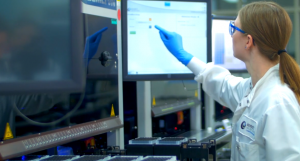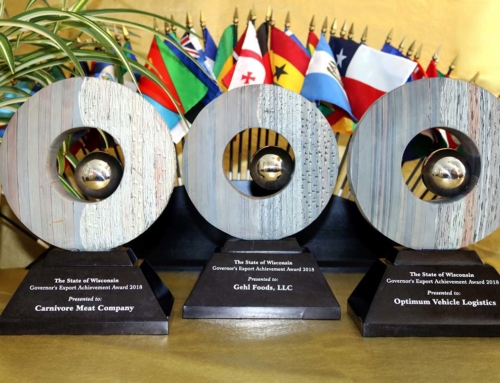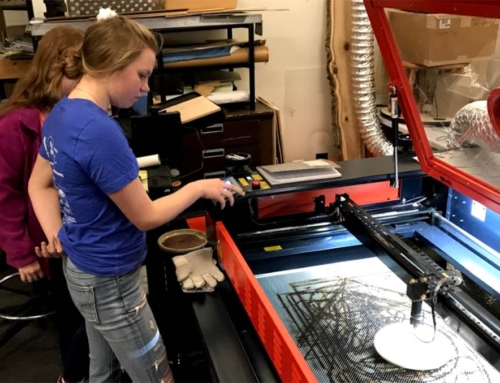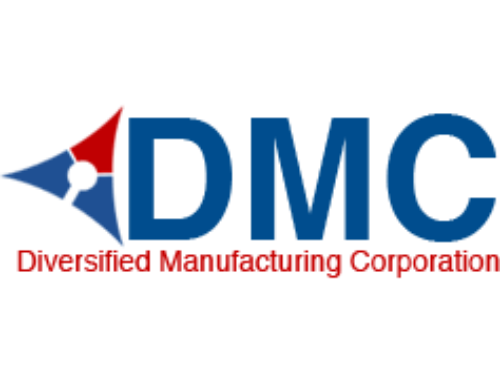
The report, which was commissioned by BioForward and conducted by consulting firm EY (formerly known as Ernst & Young) in 2015, indicates there are more than 1,600 bioscience companies and nearly $1 billion in academic bioscience research and development taking place throughout the state. The findings were announced on Sept. 16 in Madison as part of the 2015 Wisconsin Bioscience Summit, where industry professionals gathered to hear from experts at leading Wisconsin companies.
Kevin Conroy, CEO of Madison-based Exact Sciences, and Matt Jennings, CEO and president of Hudson-based Phillips-Medisize, were among the list of presenters who addressed the impact of the industry throughout the state. Both Conroy and Jennings also discussed the industry’s impact in the new Bioscience In Wisconsin video, highlighting why they believe Wisconsin is a hotbed of research and innovation.
“We have a strong culture of innovation [in Wisconsin],” says Conroy in the video.
This “culture of innovation” is what helped motivate Conroy to relocate Exact Sciences from Boston to Madison in 2009. Conroy knew the state, with its top academic institutions, would provide the company with access to a highly skilled labor pool and experts in DNA research to assist with product development.
“We moved Exact Sciences to Madison because of the state’s qualified, dedicated workers and access to top universities to recruit talent,” says Conroy. “We have phenomenally talented scientists who are graduating every year from UW-Madison.”
Jennings also points to Wisconsin’s talent pipeline as a key ingredient to its success in the bioscience industry.
“We hire anywhere from 10 to 20 graduates from the University of Wisconsin-Stout,” cites Jennings in the video. “And they’re able to give us the people that we need that are committed, hardworking, knowledgeable and are familiar with our business.”
Throughout the video, industry professionals explain how statewide collaboration is another important contributor to the industry’s strength in Wisconsin. Business, academia and government agencies come together to make Wisconsin an ideal destination for startups and established companies seeking research partners, joint ventures and increased production capabilities.
As a whole, innovation and discovery, a skilled workforce and statewide partnerships are all helping drive positive results for Wisconsin’s bioscience industry. The economic impact report shows that in 2013, the bioscience industry’s direct, indirect and induced labor income contribution totaled $6.5 billion in Wisconsin. And while the industry directly employed nearly 36,000 workers that year, it indirectly contributed nearly 70,000 additional jobs to the state economy.
Lisa Johnson, BioForward CEO, further clarifies this impact, stating in the report’s introduction, “For every one direct bioscience job, two more indirect jobs are created in Wisconsin.”
Calling for continued statewide collaboration, Johnson explains, “Our manufacturing and medical device sectors rely upon one another for long-term growth. The health IT and therapeutics sectors are dependent upon one another for healthcare delivery, and private industries are reliant on our academic and research systems for both the talent and the innovative technologies they create.”
The report also states that the average salary for bioscience positions is $73,241, exceeding the private sector average wage in Wisconsin by more than $30,000 and contributing over $6.5 billion in employee compensation in 2013. Some of the leading companies cited in the report for playing a major role in attracting talent and creating regional hubs of bioscience activity, include ThermoFisher Scientific, Promega, Accuray, Sigma-Aldrich, Epic and GE Healthcare.
“We are extremely encouraged by the findings of the 2015 Wisconsin Bioscience Economic Development Report,” says Tricia Braun, deputy secretary and chief operating officer at the Wisconsin Economic Development Corporation (WEDC). “Industry partnerships continue to prove to be a valuable asset across the state. And with bioscience in particular, where innovation and discovery are so essential, collaboration is a requirement. These vital partnerships will help continue to move bioscience forward in Wisconsin.”
(October 2015)









FOLLOW US